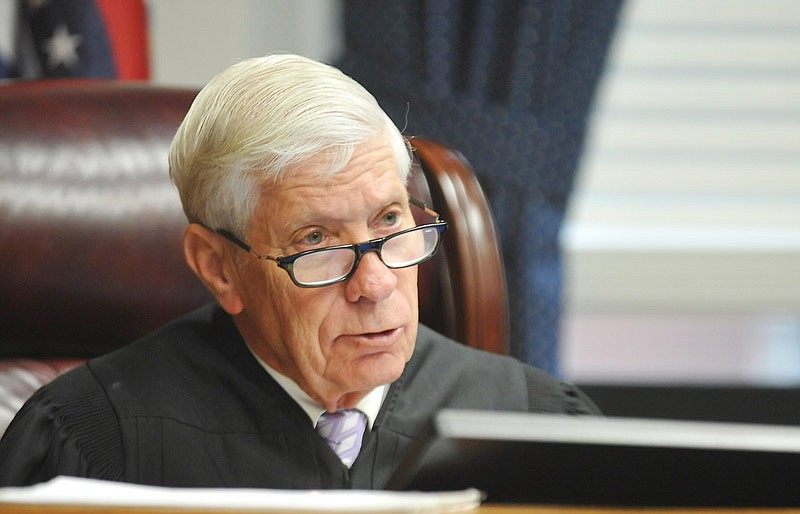Missouri voters shouldn't be asked to sign an affidavit if they attempt to vote without a photo ID in the Nov. 6 general election, after the Missouri Supreme Court on Friday denied Secretary of State Jay Ashcroft and Attorney General Josh Hawley's request to overturn a ruling striking part of the state's new voter ID law.
The state's lawyers had asked the court to stay the immediate effectiveness of Cole County Senior Judge Richard Callahan's order, which said the state can't require voters who are "otherwise qualified to cast a regular ballot" to sign an affidavit - if they don't have one of the photo IDs lawmakers included in the new law, which went into effect July 1, 2017.
Missouri voters, by a 63 percent margin in November 2016, added an amendment to the Missouri Constitution allowing lawmakers to create requirements for voters to identify themselves when voting at their polling place, including using photo IDs.
The lawsuit challenging the new law was filed by a Washington, D.C.-based group, Priorities USA, on behalf of Holts Summit native Mildred Gutierrez, 70, who now lives in Lee's Summit, and other plaintiffs.
The lawsuit said the amendment didn't change the effect of previous constitutional language that people who are registered properly "are entitled to vote" and the new law enacted under the amendment's authority created problems for people trying to vote.
In their motion for a stay, the state's lawyers argued Callahan's Oct. 8 ruling "improperly enjoins the enforcement of various aspects of Missouri's voter-identification law. Of particular concern, the court invalidated a sworn-statement provision that is integral to one of three options for voting under the law."
Callahan's ruling listed the three options voters have under the new law, including:
Presenting one of several forms of government-issued identification cards listed in the law, that include a photograph of the person named on the ID.
Showing other kinds of identification that show the person's name and address, "coupled with the requirement that the individual sign an affidavit, under pain of perjury, that they are the person on the identification, and the resident voter."
Using a provisional ballot, including a sworn statement "that the individual is the registered voter but otherwise allows the person to vote without presenting any form of identification."
"For the vast majority of Missouri citizens," Callahan wrote, "the photo identification requirement under Option One poses no burden whatsoever."
But, he ruled, Missouri's sworn statement went too far, requiring the voter to say he or she didn't "possess a form of identification approved for voting" because they didn't show a photo ID - even though many voters had one or more of the alternate kinds of ID allowed by the law.
The requirement that a voter sign an affidavit when they don't have the right photo ID "impermissibly infringes on a citizen's right to vote as guaranteed under the Missouri Constitution," Callahan wrote.
Callahan's ruling cited a 2006 Missouri Supreme Court ruling - in the last Missouri case involving a photo ID requirement - that the state had a right to ask voters to sign a statement because "the state has a legitimate interest in preserving the integrity of the election process."

